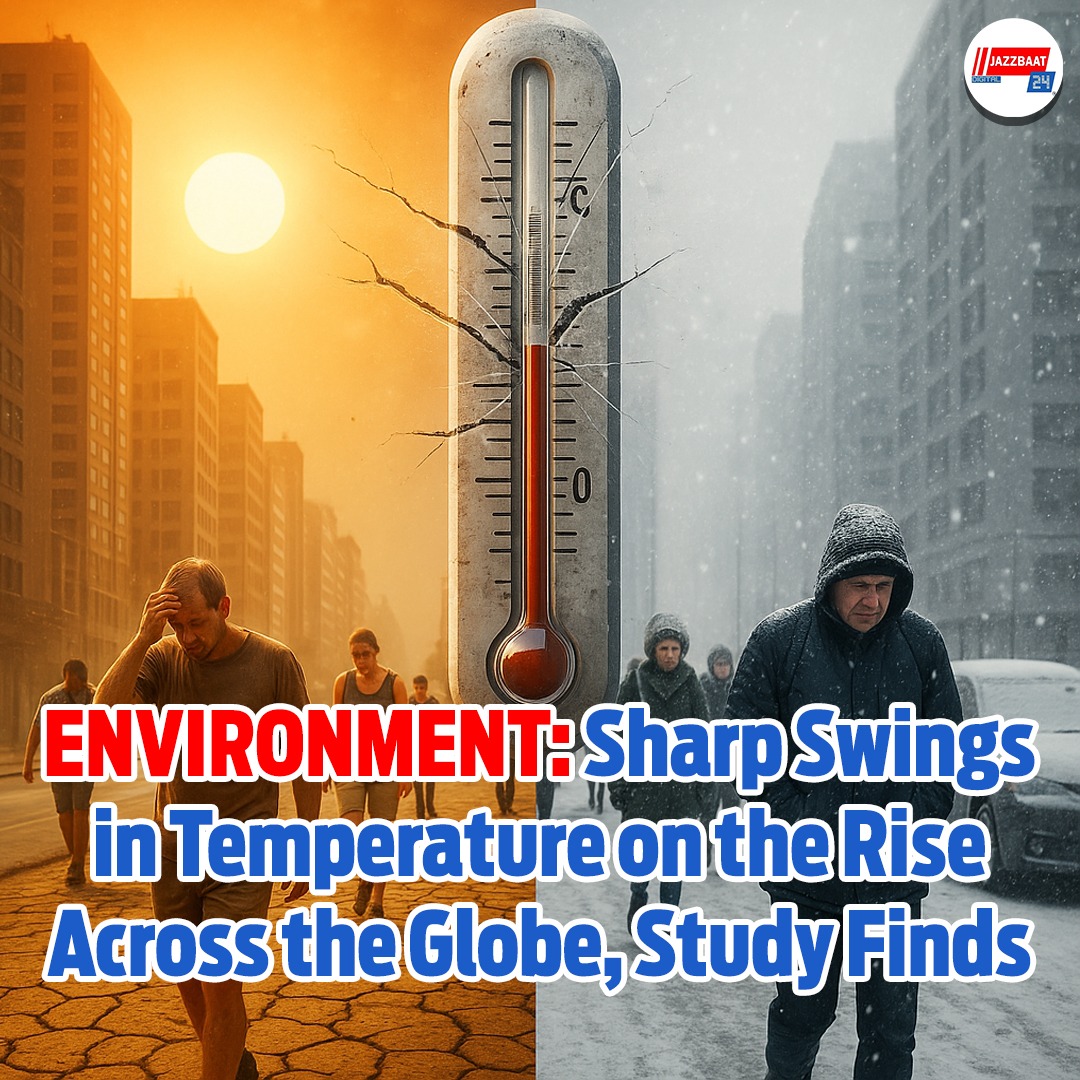
Sudden shifts in temperature — swinging quickly from hot to cold — have become more frequent in around 60% of the world’s regions over the past 60 years, according to a new study.
Researchers from Sun Yat-sen University in China and Princeton University in the United States noted the steepest increases in these swift changes within regions like South America, western Europe, Africa, and some areas of South and Southeast Asia.
They cautioned that this trend is projected to continue spreading further in the years ahead, with poorer nations most likely to feel the effects — experiencing about four to six times more frequent transitions than the worldwide average.
The scientists noted that since these changes occur so rapidly, there is not much room for humans, animals, and systems to acclimatize, which could further exacerbate the harm done by both heat and cold. This may impact health, agriculture, infrastructure, and ecosystems.
Although past research has attributed extreme temperatures to higher risks of health issues such as heart attacks and strokes, the impacts of these rapid transitions are still not fully appreciated, they further added.
The results, in *Nature Communications*, are based on global temperature records from 1961-2023. The researchers point out that over 60% of the regions the Intergovernmental Panel on Climate Change (IPCC) has determined have experienced increasingly frequent, stronger, and accelerating temperature changes since 1961 — a pattern expected to increase.
If greenhouse gas emissions continue to rise over the 21st century, these temperature reversals are likely to be more extreme and frequent from 2071 to 2100.
The population exposed to such sudden changes is estimated to increase more than twice under this high-emissions scenario, with the world's poorest countries experiencing much higher exposure — as much as 6.5 times that of the global average.
But the scientists stressed that reducing emissions could slow the spread and effects of these changes, stressing the need for urgent climate action.